The Hills Are Alive…
I couldn’t get the songs from The Sound of Music out of my head this week. Everywhere I went in Trentino, a mountainous province in far northern Italy, I could literally hear the sounds of music.
The clang, clang, clang of cow bells seemed to follow wherever I went (large bells are tied around the neck of the cows so that herders – or shepherds – can keep track of the herd grazing on mountain pastures) as did crowing roosters and the welcome background songs of birds enjoying the sunny Springtime weather.
I’d never been to this part of Italy before and was lucky to visit with the students from my Master’s class at UNISG on a study tour. At Agriturismo Fior di Bosco in Valfloriana (Valley of Flowers) the cows graze on nearby meadows twice a day until mid-June and then are taken higher up in the Alps (2000 metres above sea level) for summer grazing.
From the rich, raw milk a variety of traditional alpine cheeses (Nostrano, ricotta, casasto di fossa, formaggio di fieno) are produced, plus butter, milk and yoghurt perfumed with the herbs and flowers from the alpine pastures.
Studies have found that cheese made from the milk of cows which graze on alpine pastures has a more favourable fatty acid profile than other cheeses. Alpine milk and cheese contain more omega 3 fats, such as alpha linolenic acid, and have relatively low concentrations of saturated fats compared with other cheeses. Not only are such cheeses better for you, they also have a far greater variety of flavours than other cheeses.
One morning, after milking, we walked the cows down through leafy trees by a fast-flowing stream to the meadows. Daniel, the 19-year old herder (shepherd) and cheese-maker, walked with us and told us about his life in Valfloriana.
Born nearby in Valseriana, Bergamo, he’s one of a rare breed these days as most young people leave the mountains to work in cities and towns.
As a paper by Slow Food in 2013 points out,
“Over the past 30 years, the farming population in the Alps has fallen by 40%, and half of the farms active at the start of the 1980s have closed…Without a generational turnover, within 20 years two-thirds of farms in the Alps will shut down, and already agriculture is almost always a secondary, subsidiary activity.
“The abandonment of the mountains has serious environmental, social and economic consequences. We must not think of mountain pastures as wild places, able to self-regulate. High-altitude meadows require constant and careful management.
“They cannot be used too much or for too long, and they must be kept free from infesting species. Without herders and cheesemakers, the pastures would grow wild and disappear.”
And that would be a tragedy.
One afternoon, on our way to Pflegerhof herb farm from our B&B, Residence St Konstantin, near the Sciliar Mountains, we walked through such heavenly meadows that I had to pinch myself to make sure I wasn’t in an an air-brushed movie.
Some of the girls had spontaneously begun singing My Favourite Things, one of the popular songs from The Sound of Music, while another group started up with Do-Re-Mi. A few of the Italian girls chimed in with the Italian version, which is different from the English – for Ti, we sing: ‘a drink with jam and bread’, whereas the Italian version becomes Si: ‘se non ti dico no’ i.e ‘Yes, if I don’t say no to you’. Gales of laughter all round as we realised just how different their version was.
Up hills and down dales we went, passing ever steeper meadows along the way (I don’t know how the cows can stand upright!).
When we arrived at Pflegerhof, Maria – daughter of the owner, Martha Mulser – told us that her mother had built the terraced herb farm on a steep meadow where a few cows once grazed.
“But we couldn’t make a living a from the cows,” she told us. “It was my mother’s passion to start an organic herb farm back in 1982, and when my father died in 1994, it provided an income for the family (Martha and four children under 18).
“It was very difficult at the start because she was the first to grow organic herbs in the South Tyrol. Now there are forty organic herb farms.”
The herbs are grown in a sunny, protected position with a southern aspect.
“Even though it’s 800 metres above sea level, it’s a Mediterranean type climate. My sister Cornelia is the gardener and the herbs are grown in the form of mixed cultivation which helps them stay healthy and complement each other in a positive way.”
One hundred different salvias are grown, plus 60 different mints (including banana min), 26 different thyme, 14 different basils and 9 different types of rosemary.
Just some of my favourite things.
Seven hundred different seedlings are for sale, plus a range of herbal products including teas, spices, syrups, cosmetic creams and oils and herbal pillows.
Last year Martha won a De@ Terra award from the Italian Ministry of Agriculture and Forestry and the National Rural Network (NRN) for her innovative work, with special attention to preservation of the environment and natural heritage.
It was off to the woods after that for a dip in the lake before the sun set.
As I walked back to the B&B after dinner that night along a narrow moonlit road, a cuckoo began its plaintive call from the woods and followed me home. The words of another song from The Sound of Music came back to me:
There’s a sad sort of clanging from the clock in the hall
And the bells in the steeple too
And up in the nursery an absurd little bird
Is popping out to say “cuckoo”
[Marta, Gretl, Brigitta:]
Cuckoo, cuckoo. Ah yes, I thought, as my head hit the pillow: The hills are alive with the sound of music With songs they have sung for a thousand years The hills fill my heart with the sound of music My heart wants to sing every song it hears Note: The Sound of Music is celebrating its 50th anniversary this year which will be marked with a special festival in June in Salzburg, Austria. Note 2: The Italians have a little ditty about the cuckoo, appropriate for this time of the year:
And the bells in the steeple too
And up in the nursery an absurd little bird
Is popping out to say “cuckoo”
[Marta, Gretl, Brigitta:]
Cuckoo, cuckoo. Ah yes, I thought, as my head hit the pillow: The hills are alive with the sound of music With songs they have sung for a thousand years The hills fill my heart with the sound of music My heart wants to sing every song it hears Note: The Sound of Music is celebrating its 50th anniversary this year which will be marked with a special festival in June in Salzburg, Austria. Note 2: The Italians have a little ditty about the cuckoo, appropriate for this time of the year:
Cucu, cucu, l’aprile non c’e piu
E ritornato il maggio al canto del cucu
The winter now is over
And April rains are gone.
It’s May again, I know,
For I hear the cuckoo’s song.


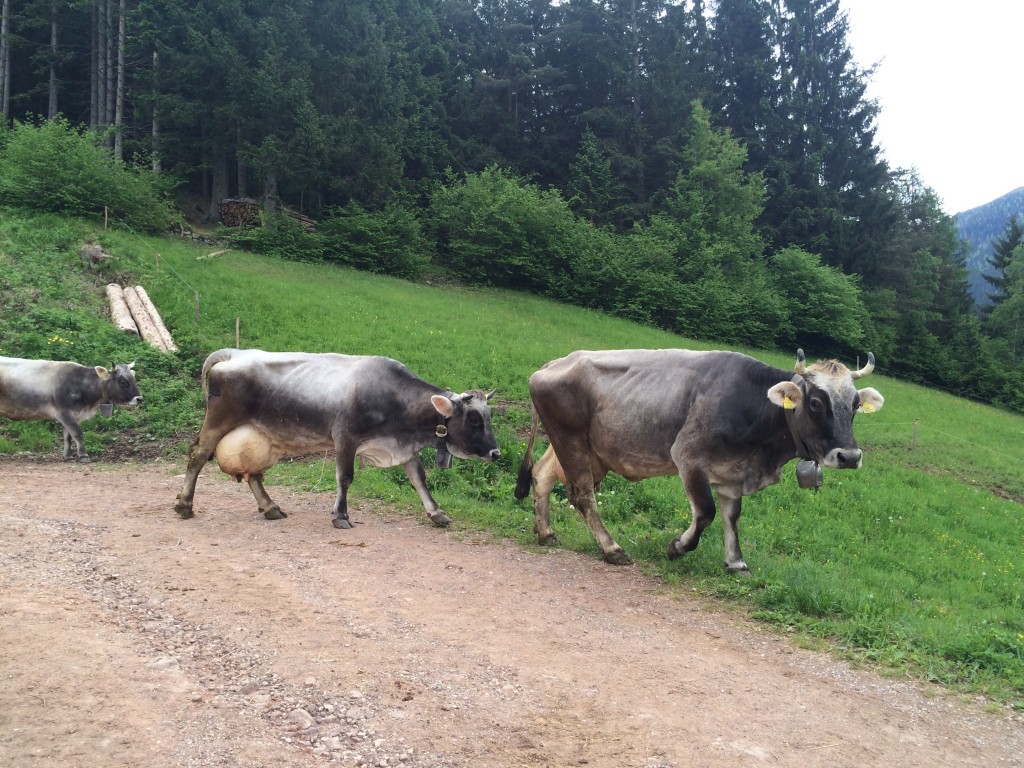
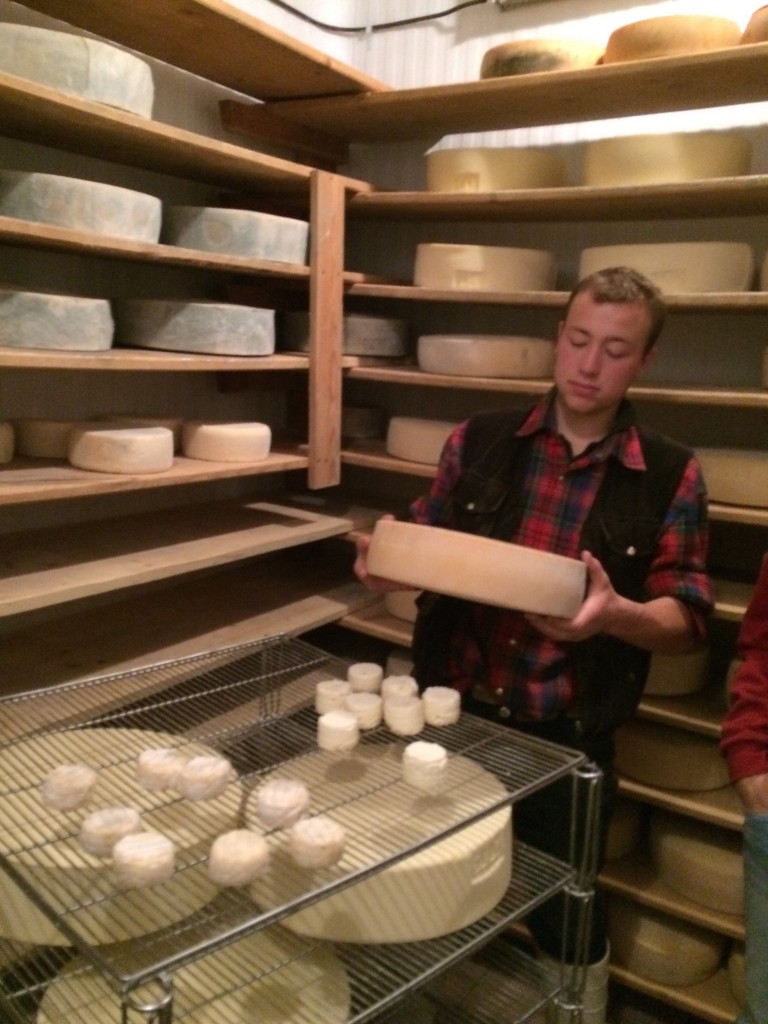
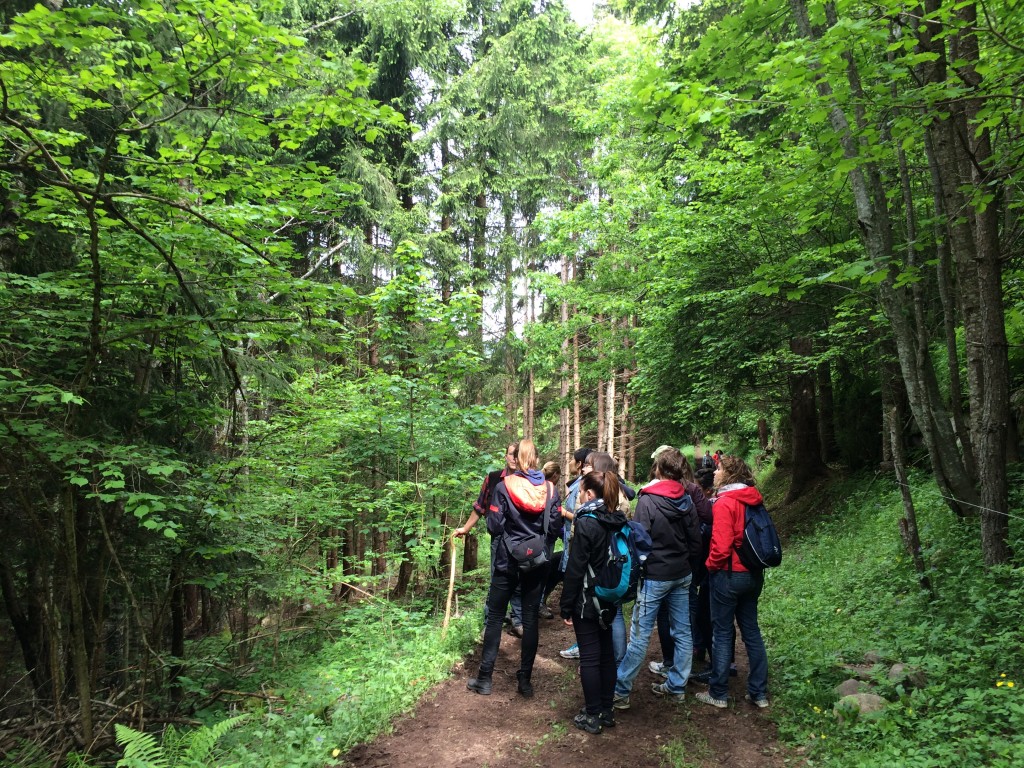
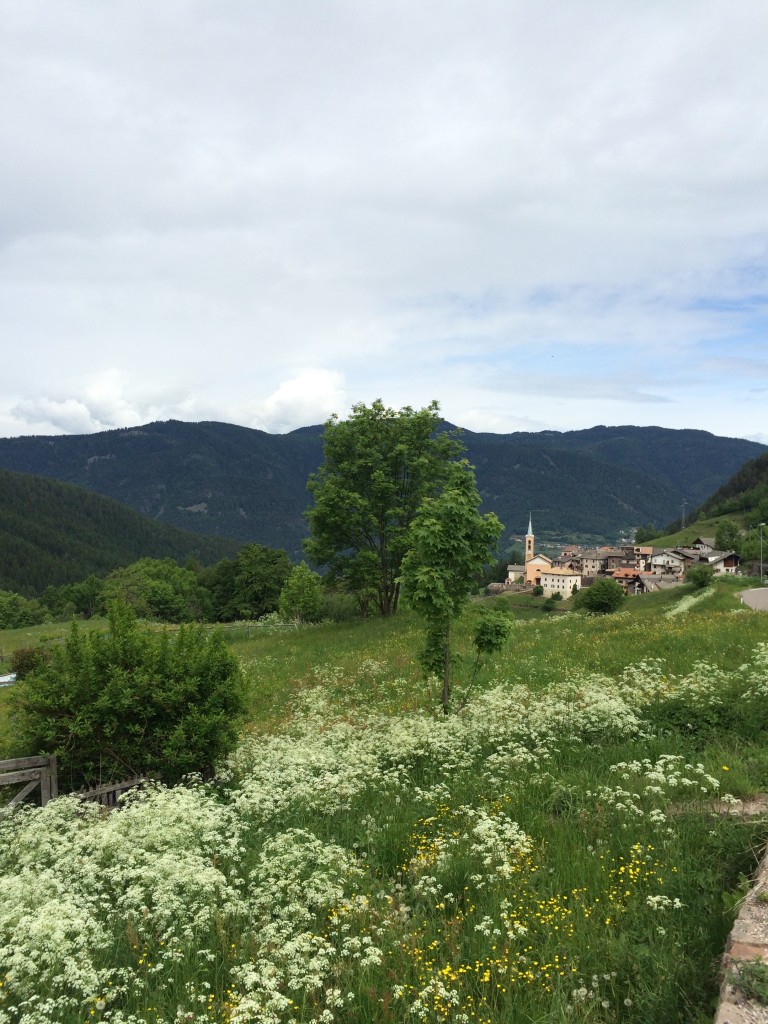
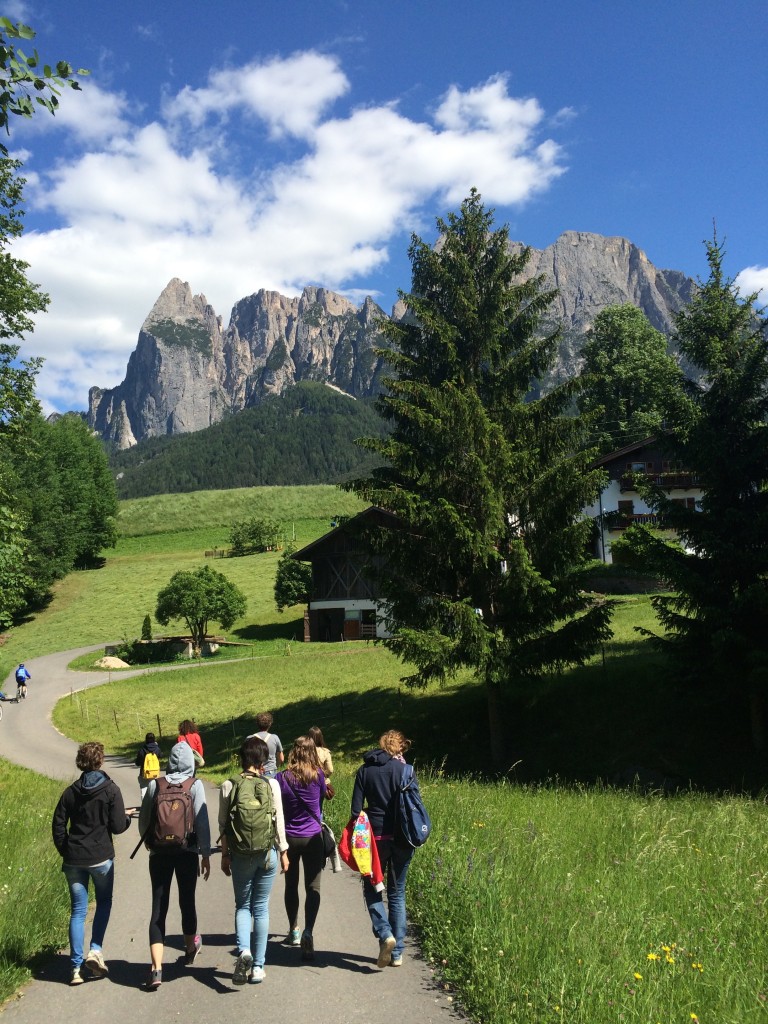
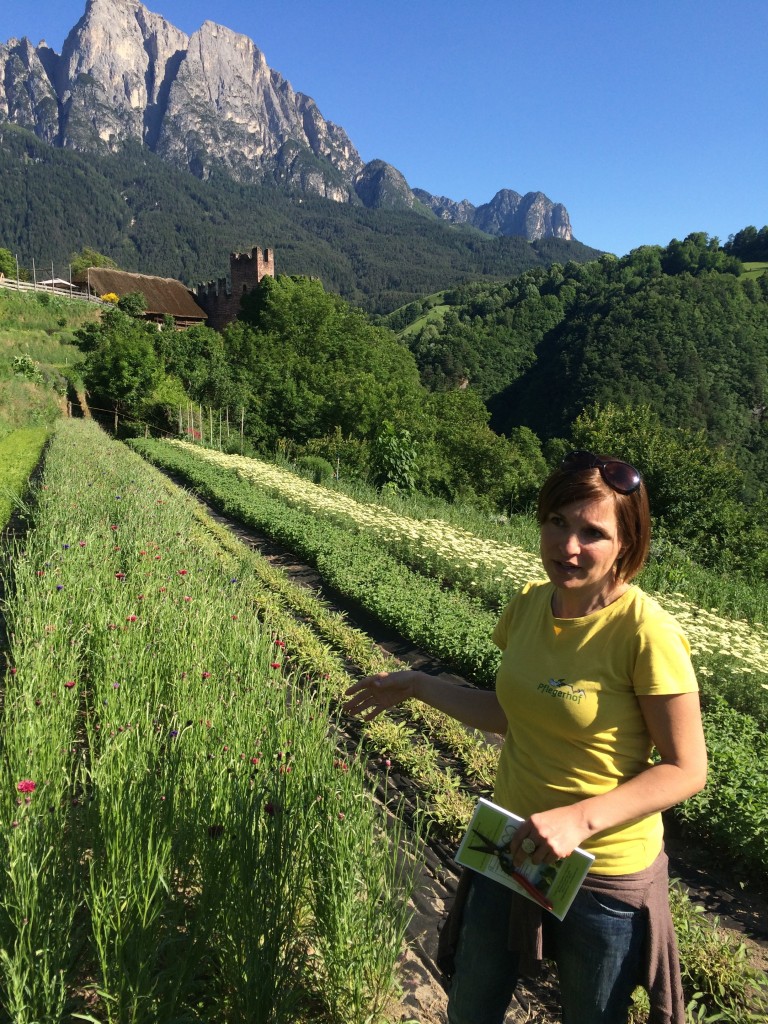
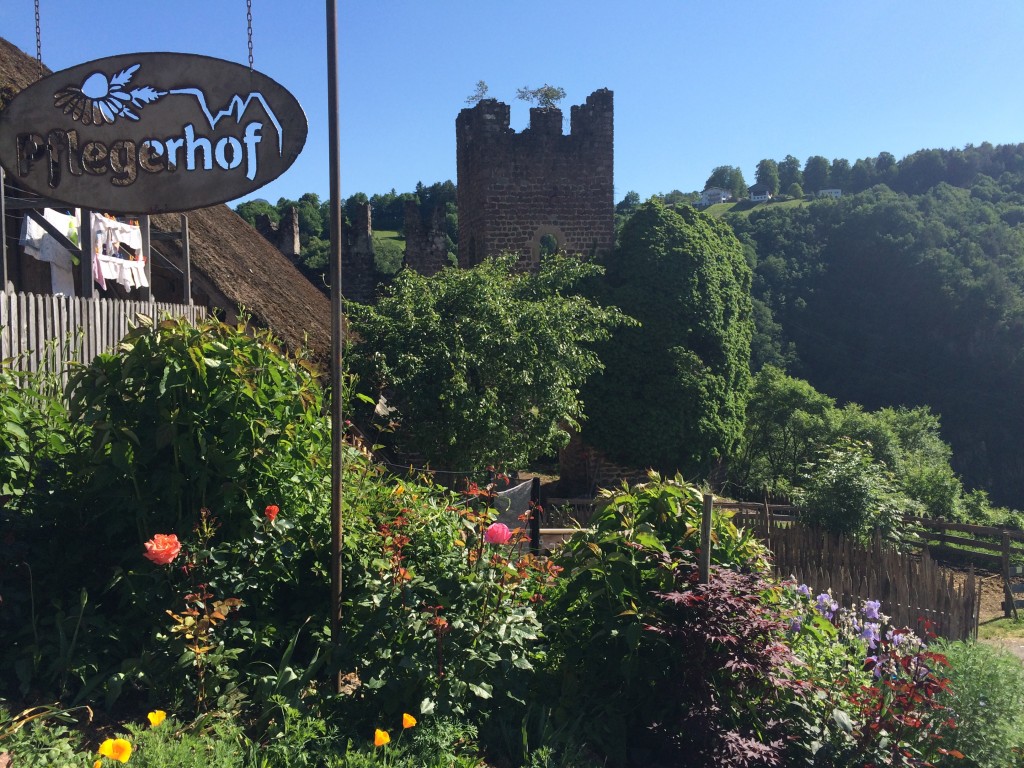
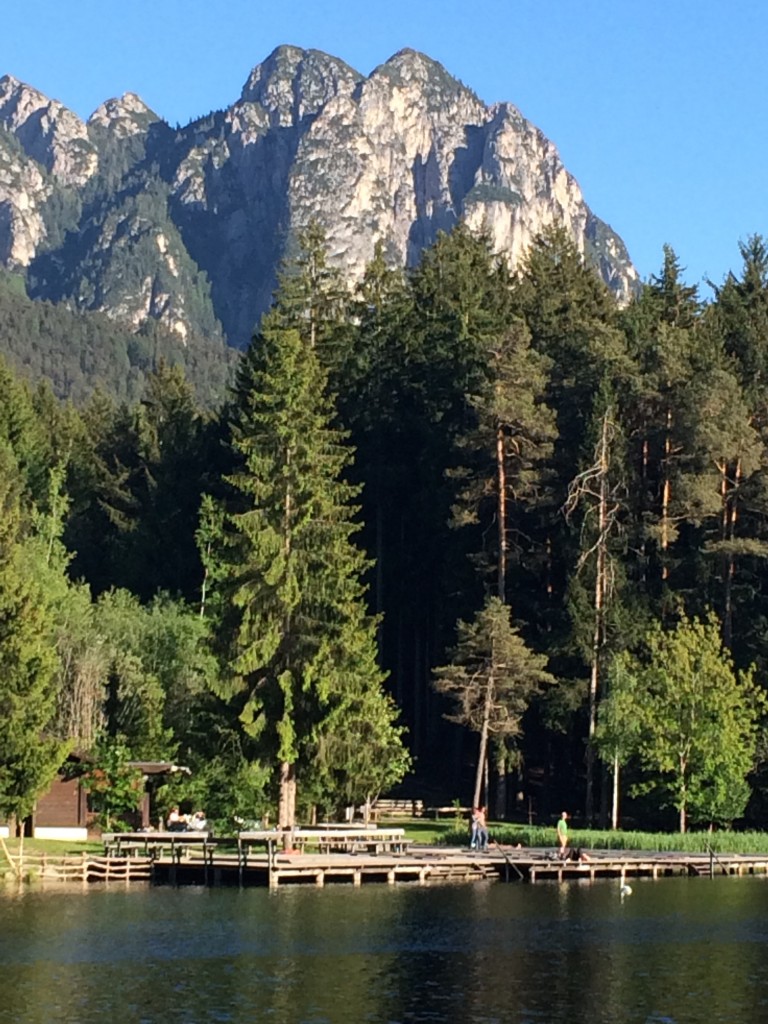
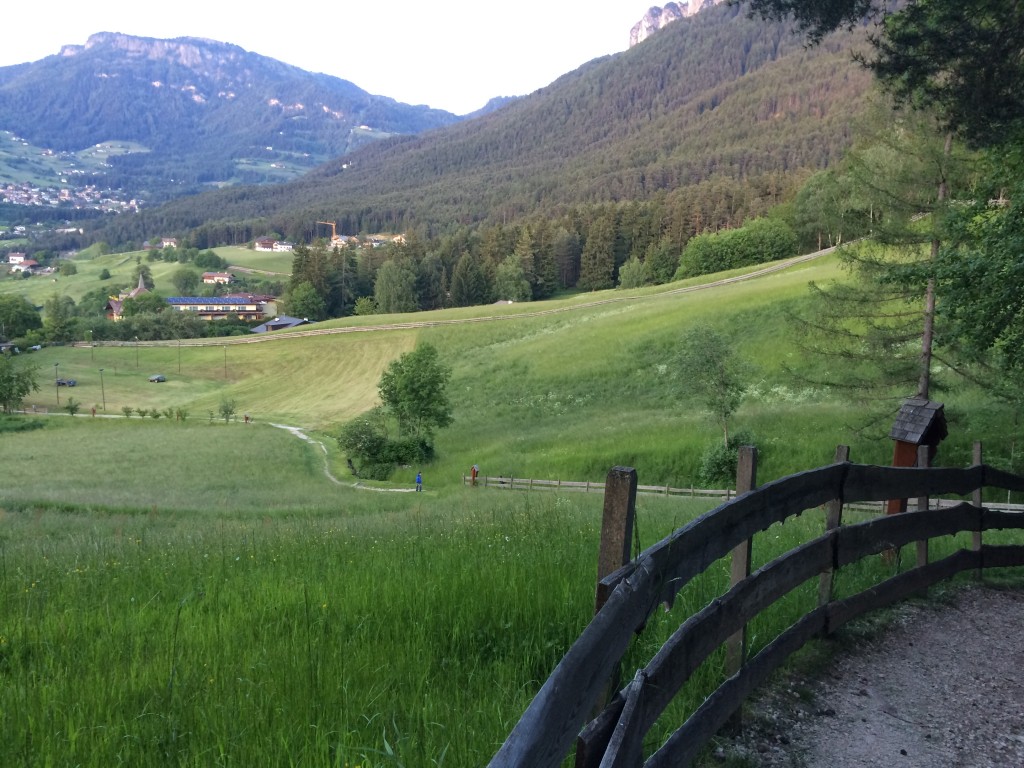
Magnificent Sheridan! I love reading your stories and I am green green with envy. I would love to experience what you are doing. The herb farm was devine. I must go there.
Your stories will be a wonderful record of this year. Don’t think too much about the exams etc. Just pass them.
It is now winter here and getting pretty cold. The wood stove goes nearly every night. I have peas and lettuce in the garden.
Lots of love,
Linda
Grazie, Linda…I loved the herb farm and bought their little book which has the names of all the herbs they grow.
I hope your lettuce survives the winter frosts. Here, it is already very hot. Can’t believe they close the pool on Sundays!
Sheridan